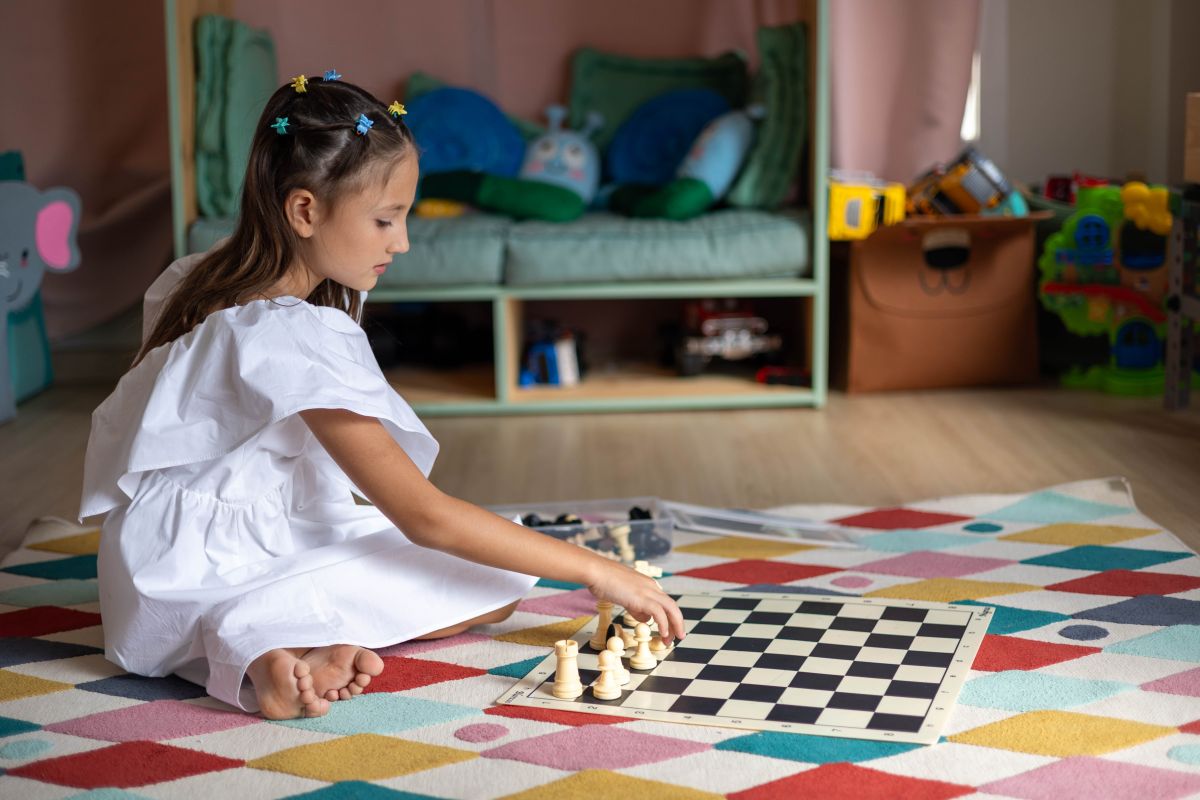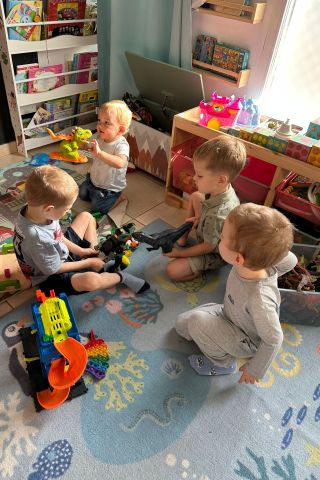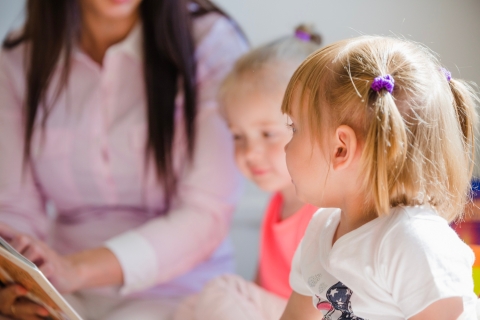Education
"Childhood is not just a step toward life — it’s life in its purest form"
An Interview with Olga Duke: the educator behind the unique approach at Happy Dom Children’s Center in Albir
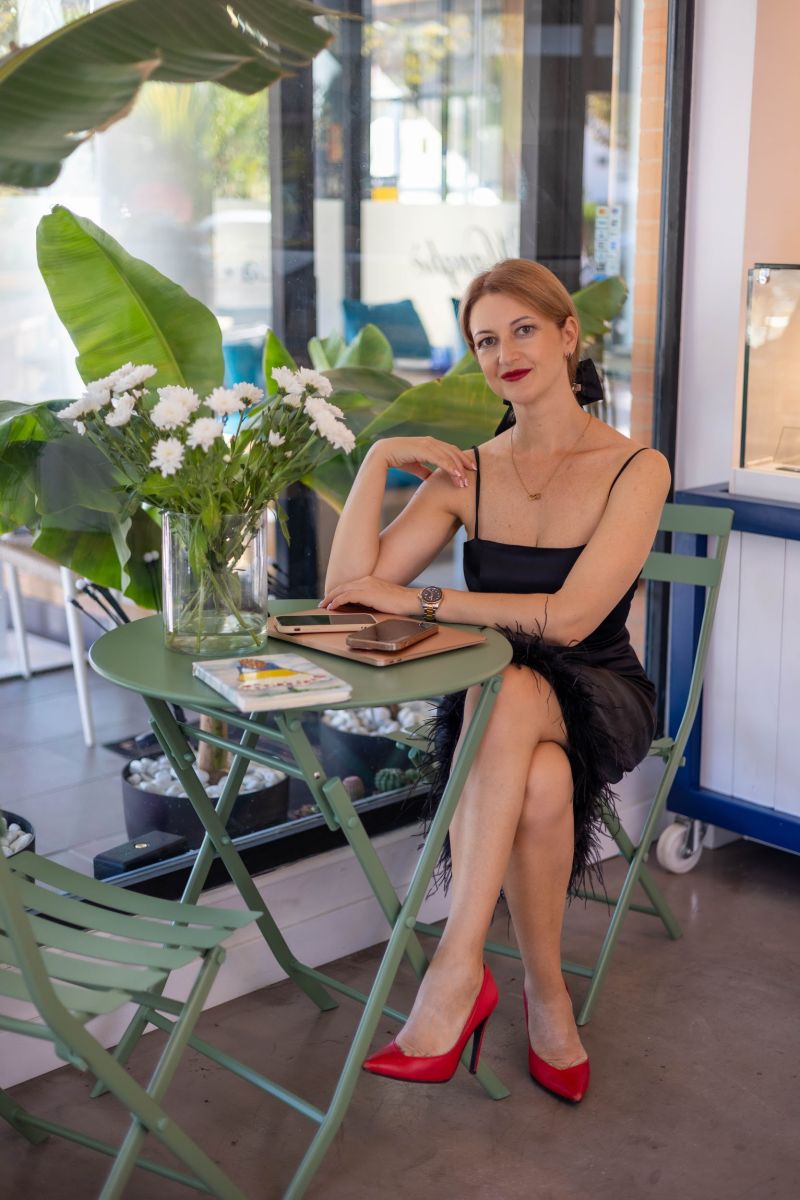
How can a child grow up in emigration—free, well-adapted, and emotionally grounded—without losing depth, connection to their native language, culture, and inner self?
On the Costa Blanca, where international families are becoming an increasingly integral part of the local community, questions of parenting and early education take on a special significance.
Olga Duke is an educator, PhD in Pedagogy, and the author of an educational approach that combines respectful communication with children, emotional literacy, and the cultivation of inner freedom. The philosophy she promotes is reflected in the atmosphere of Happy Dom, a family adaptation and early-years center in Albir—a warm, conscious space for children and parents seeking a mindful approach to upbringing on the Costa Blanca.
What key principles and values do you consider fundamental in modern early childhood education?
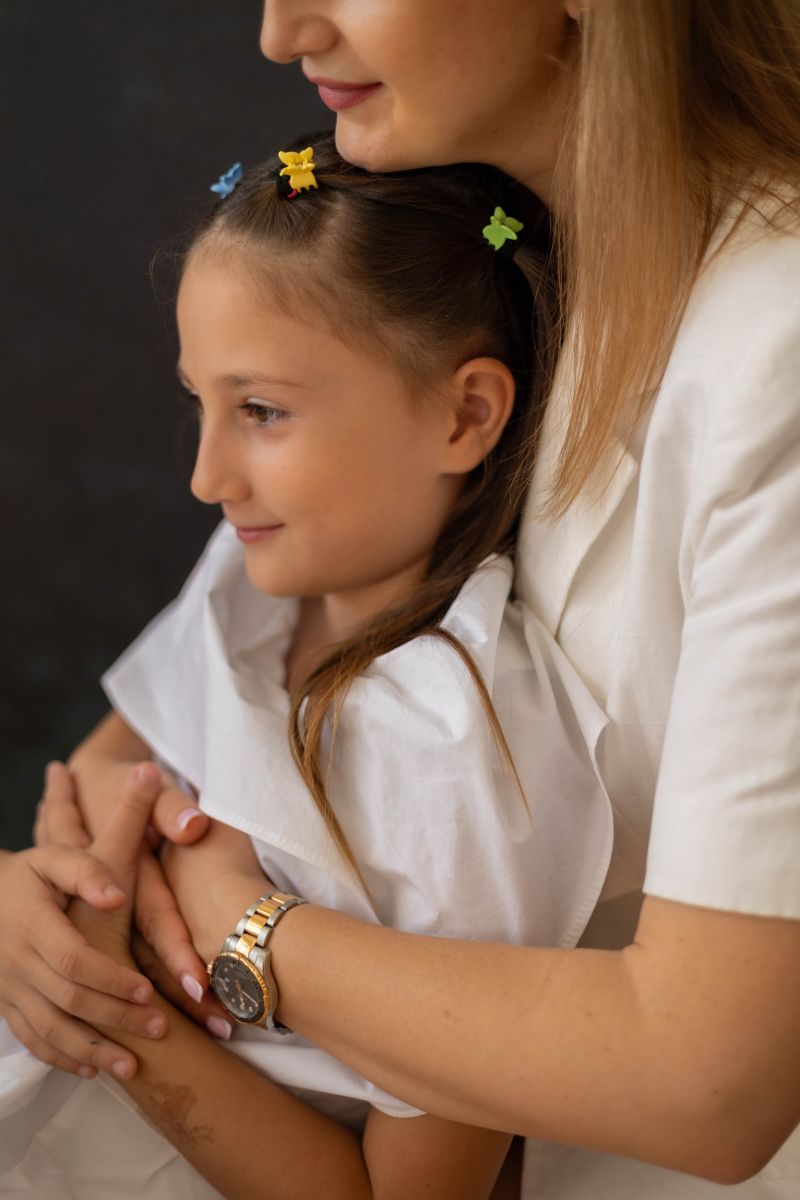
When we talk about values in early childhood education, the child’s personality is always our starting point. And it’s not just a phrase — concepts like personal growth or an individual approach carry a deep and practical meaning for us. We strive to see in each little one not simply a student, but a unique human being with inherent qualities and talents that deserve to be noticed, supported, and nurtured.
We feel a strong connection with the philosophy used in some Japanese kindergartens, where teachers work in very small groups and introduce elements of early career guidance. Already between the ages of two and five, educators carefully observe each child and make professional assessments about their natural inclinations and strengths.
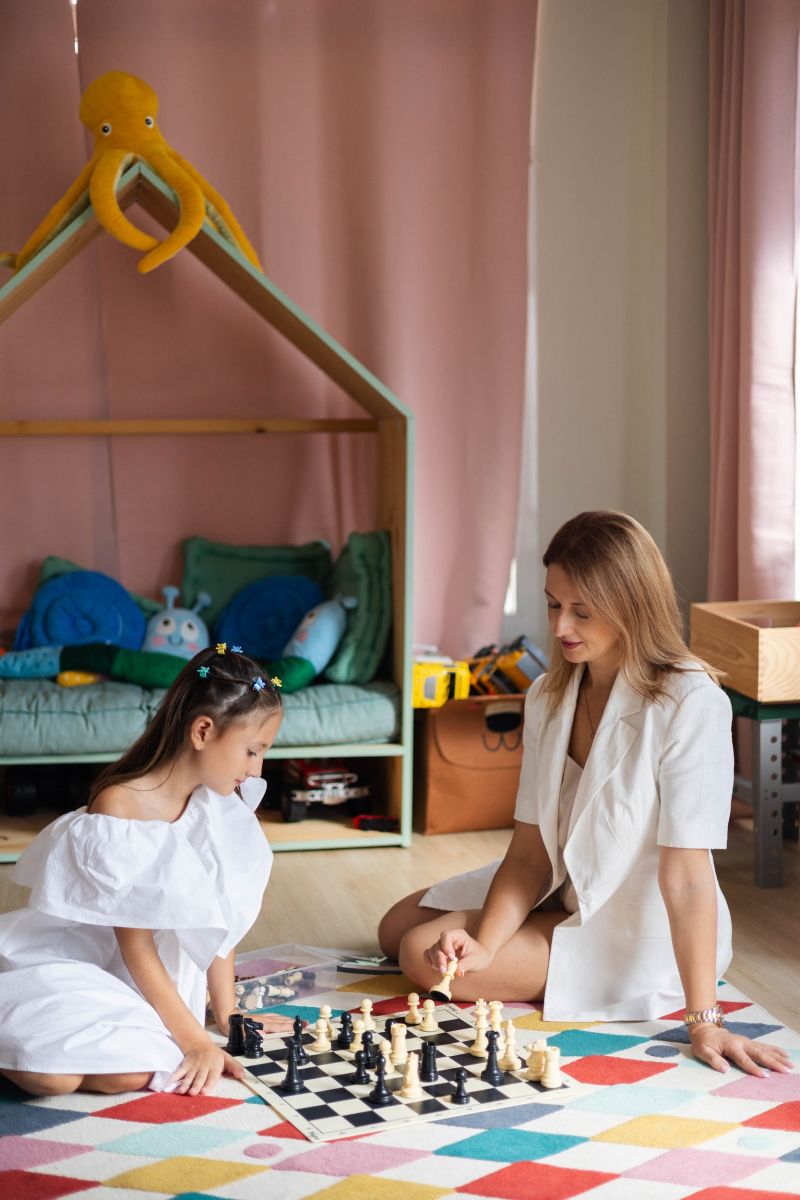
Why is this important? Because as children grow, they accumulate knowledge and experience — yet often lose something far more essential: the knowledge of themselves. We see it as our responsibility not to let that inner knowing fade. Our task is to recognize and preserve the natural inclinations and inner impulses that reveal themselves very early in life. Today, many things become blurred and mixed. But we want children to remember who they are, to stay connected to their true desires, and not to lose touch with themselves.
What teaching methods and practices do you prefer to use with children aged 3 to 6 — and why do they work?
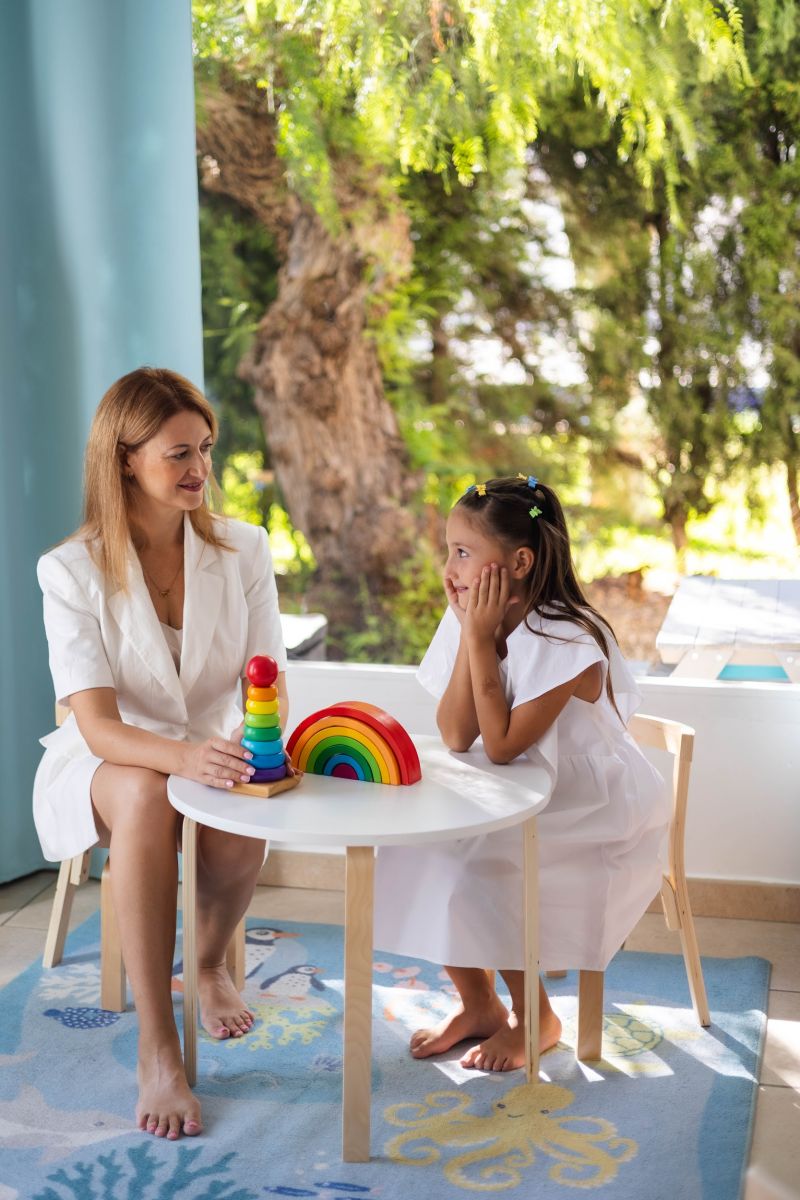
First of all, we never use any method in its pure, isolated form. As soon as we build an entire educational environment around a single system, we inevitably create limitations — both for the child and for the teacher.
Take the Montessori method, for example. It’s extremely popular today, and indeed, it contains many valuable elements. But we must remember that Maria Montessori was a physician, and she designed her system primarily for children with developmental differences. If we indiscriminately apply the entire method — especially its strong emphasis on fine motor work — we may not only fail to support a neurotypical child, but potentially slow down their natural development.
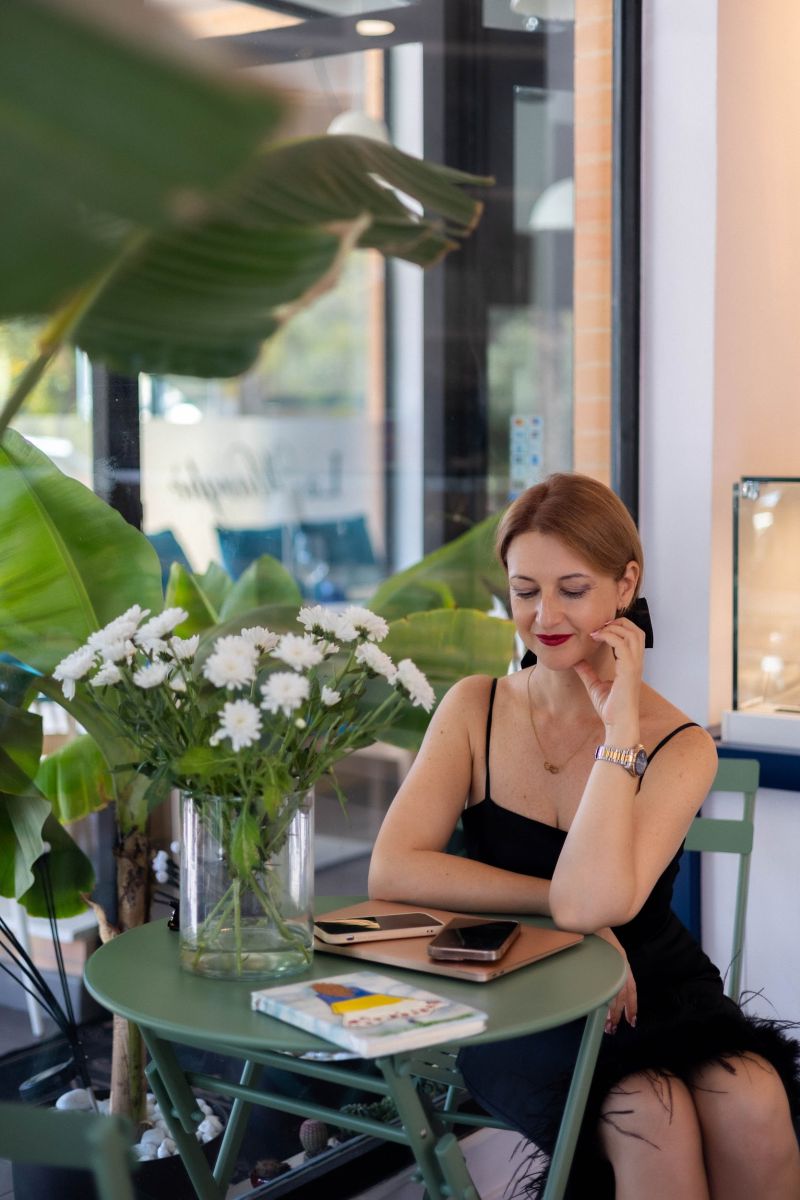
Today, however, we often work with children whose gross motor skills are underdeveloped; they lack basic spatial awareness and a clear sense of their own body. This becomes especially noticeable outdoors: children lose their sense of boundaries and feel disoriented in open spaces.
That’s why we choose the best elements from different approaches — Montessori, Waldorf education, classical pedagogy, and, for example, Vasily Sukhomlinsky’s My Heart I Give to Children, which remains one of our guiding books. We also study in depth the practices used in the German preschool system.
What matters is that any method we use is not just fashionable, but emotionally, culturally, and mentally aligned with the children and adults in a particular environment. Only then does it truly work.
How can parents in Spain determine whether an educational environment really suits their child? What should they pay attention to beyond schedules and pretty walls?
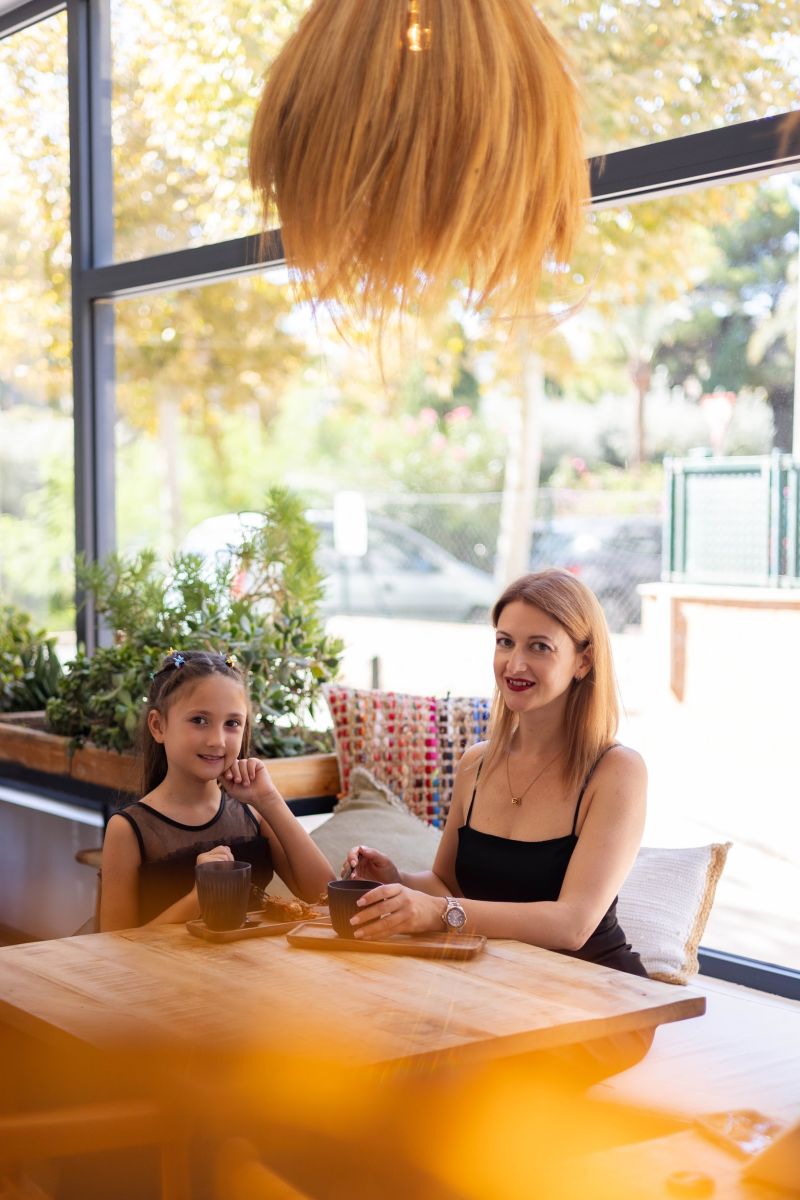
Today, when most children grow up in bilingual environments and hear several languages from an early age, it’s crucial not to overlook one key aspect — adaptation.
When a child grows up in their home country, a mother’s main concern is usually how her child will separate from her and how the transition to preschool will go. But in a new country, where an unfamiliar language surrounds the child, this question shifts to the background — and the main source of stress becomes the language itself. Parents start worrying about just one thing: “Will my child understand others? How will they communicate?” All attention goes there. Yet, in reality, this is not the only — and not even the most important — factor.
We must remember that what the child truly needs is to learn to trust the new environment and feel safe within it. And this becomes possible only through a gentle, well-designed adaptation process. We place great importance on this. Because no matter how gifted children are, no matter what abilities they possess, they all need a period of “after-care” — that delicate transition where support, warmth, and a sense of security are passed from the mother to another adult whom the parents trust.
Yes, with time a child will learn to read, write, count, speak multiple languages — this is the visible part of development. But there is something that cannot be printed on a colorful sheet of paper: an inner foundation, a deep sense of “I am safe.” And preserving that is especially important.
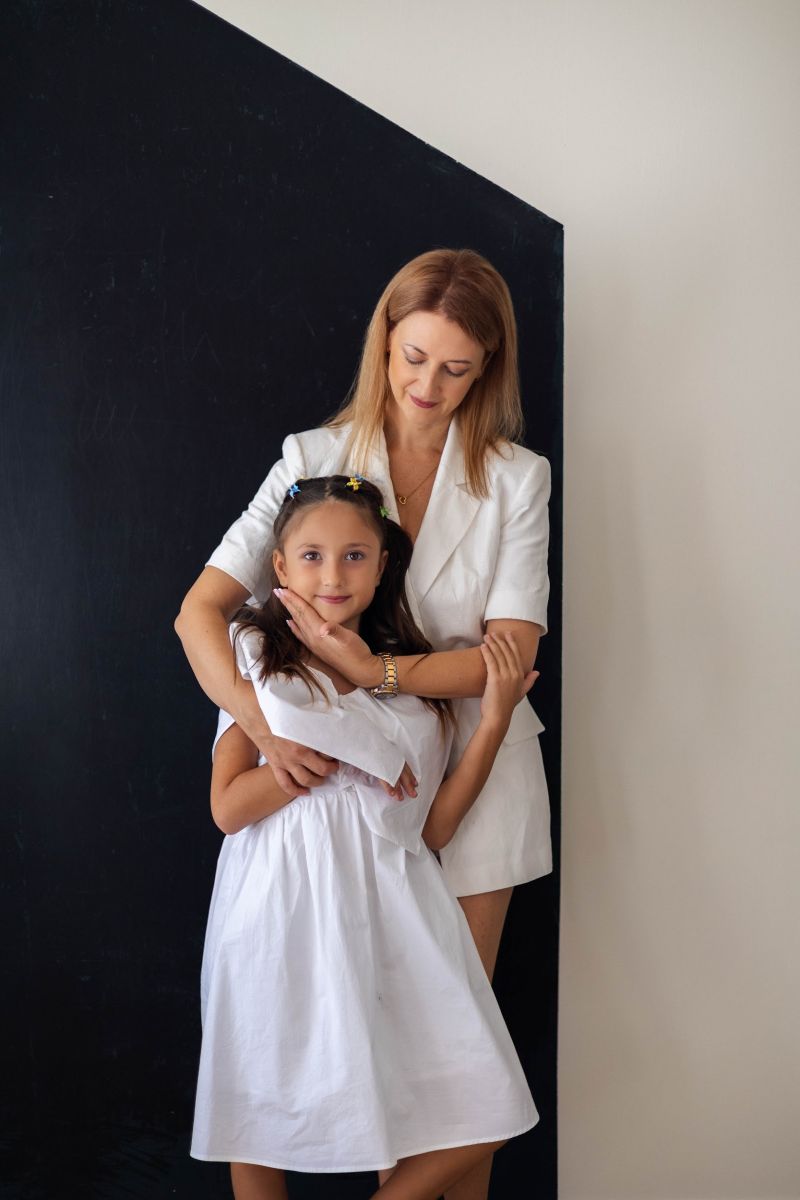
Sometimes parents think: the earlier, the better. “We’ll take the child to preschool — they’ll cry for a bit and then get used to it.” But the real question is: what mark will this leave on the child’s inner world? A person can get used to anything — even to an environment that doesn’t feel safe. And then, years later, we look for answers in therapy, trying to understand ourselves. Yet so much could have been built gently and wisely back in childhood.
This is why parents should look not only at the schedule or beautifully decorated classrooms, but first and foremost — at the atmosphere. How comfortable does the child feel? How safe, harmonious, and respectful is the environment toward the child’s natural rhythm? Only after that comes the question of methods, educational programs, and teaching systems. These things matter, of course — but without trust and a sense of emotional safety, everything else loses its value.
What place do your personal approaches take at Happy Dom, and how do these ideas appear in your daily work with the children?
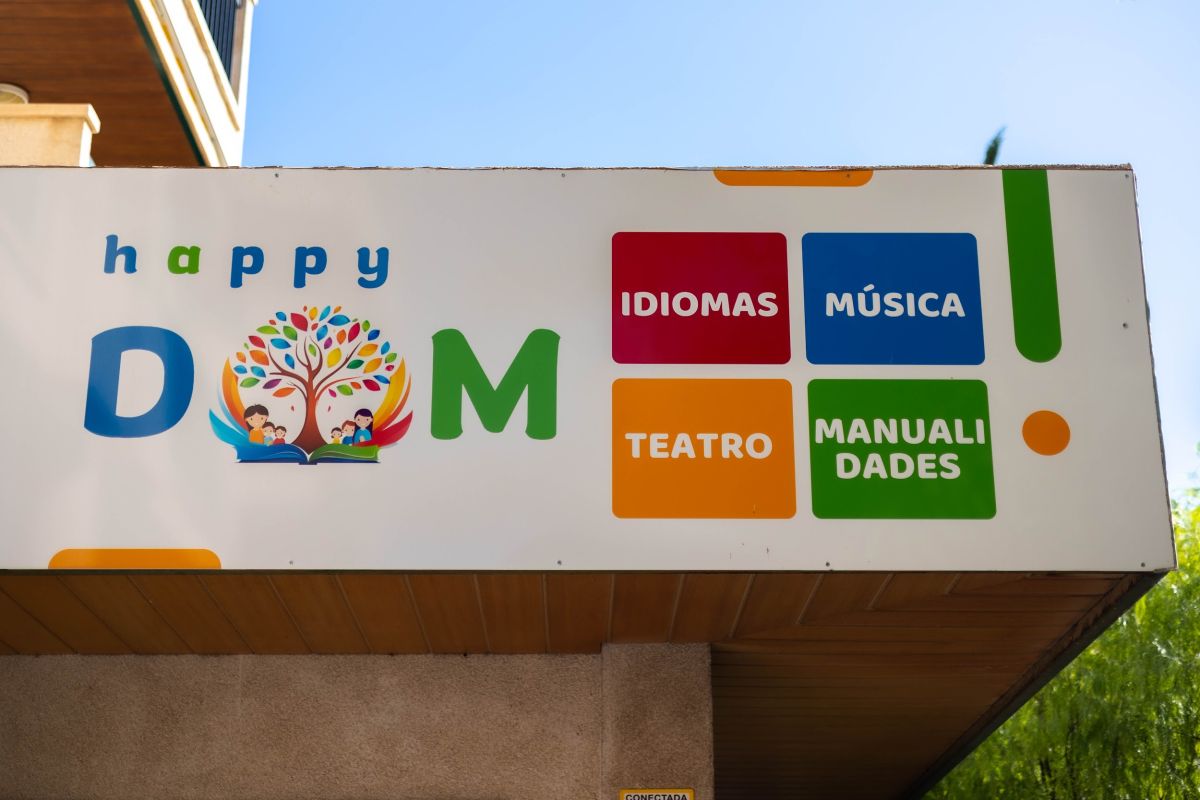
All of our approaches, ideas, and principles are not abstract concepts — they come to life every day, in every interaction with a child. From the moment a child steps through the doors of Happy Dom, they enter a space where every detail matters: how they are greeted, how they say goodbye to their parents, how the morning begins.
We have farewell rituals that we treat with great care. A handshake, a hug, a wave, a blown kiss — each child has their own little tradition. These small moments create a sense of stability and trust.
We aim to create not just an educational environment, but a true home — Happy Dom. Not a preschool in the conventional sense, but a warm, protected space where a child feels genuinely valued. We are not trying to replace parents, but we do everything we can to ensure that the atmosphere feels truly home-like, safe, and nurturing.
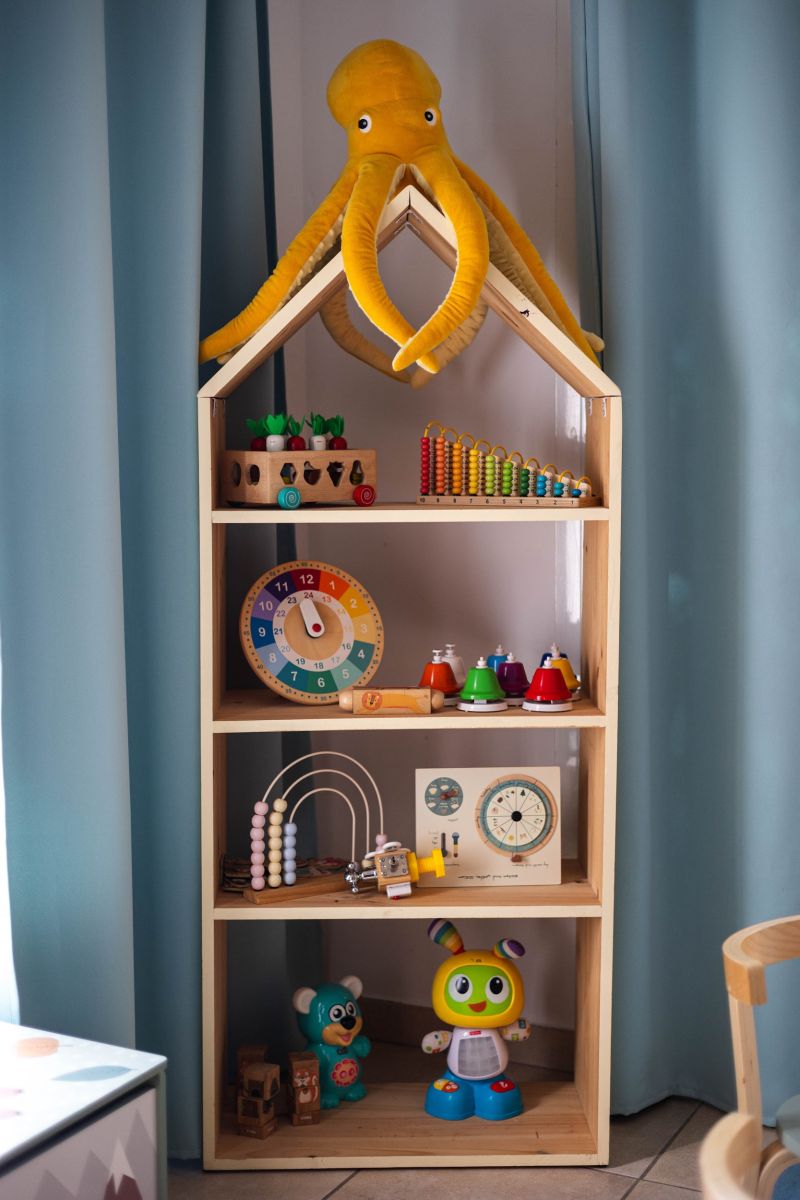
In our daily program, everything is intentionally structured: rhythmics, music, creative activities, dance, and work with texts and poetry. We place great emphasis on memorizing poems, developing visual and auditory memory, and practicing retelling, because it strengthens memory, attention, and neural connections.
Daily routines are equally important. Children learn to set the table, clean up after themselves, sweep, and treat their environment with respect. In the afternoon, they interact with children of different ages: the younger ones naturally look up to the older ones, and the older ones learn to care for the little ones. We observe carefully — who gravitates toward what — and we support this natural socialization.
Our task is not to impose, but to guide. To create an environment where a child grows in harmony with themselves and with others. We protect this atmosphere with great care and ensure nothing disrupts it.
Many foreign families in Spain face a common question: how to preserve language, culture, and values while successfully integrating into a new environment? Where does this balance begin? What truly works? And what can we learn from the local system?
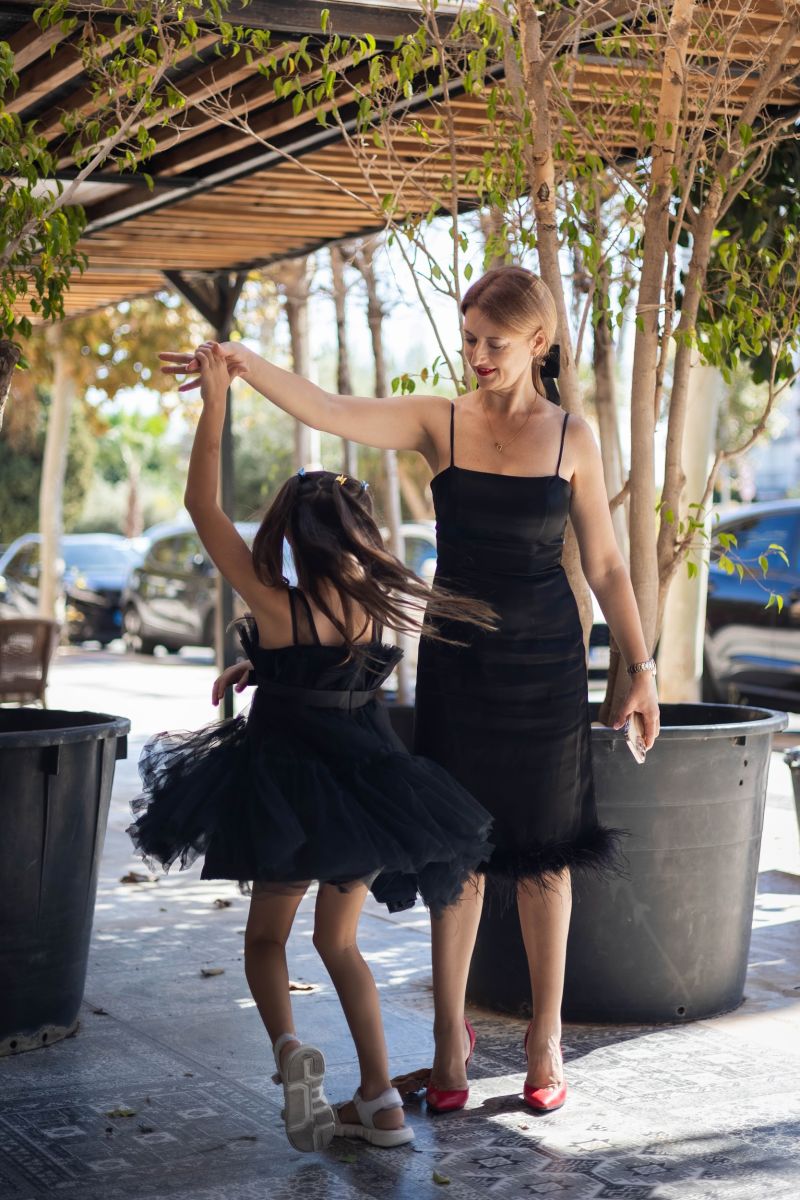
Balance begins with the mother tongue. We call it “crying in your own language.” It is crucial that in moments of stress a child hears their mother’s and father’s voices in the language they have known since birth. We always ask parents: What language do you speak at home? Because that is the language you must use when your child is experiencing strong emotions — joy, fear, frustration.
As for learning the local language, we introduce it gently — through play, warm communication, and attentive educators. No one forces children to speak only Spanish or only English. We intentionally avoid “shock adaptation.” Sudden immersion in an unfamiliar linguistic environment may cause stress, and the child may begin to repeat words mechanically — but this is superficial learning, without emotional foundation. We choose a path of gradual, organic transition.
Children at Happy Dom stay in our environment until 17:00, and afterwards they can attend clubs and extracurricular activities where they naturally enter the Spanish-speaking system — through coaches, sports, and group games. There, they gradually expand their vocabulary, but without pressure or overload.
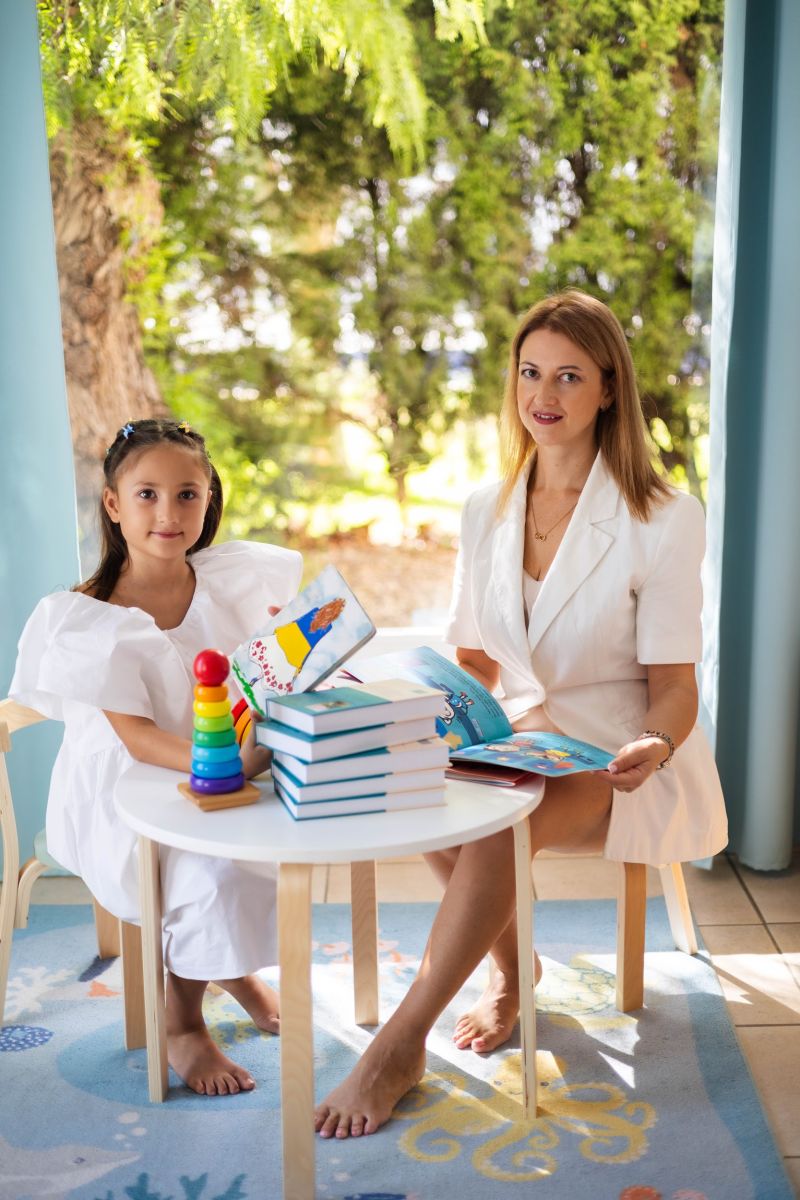
When it comes to the Spanish model, there is certainly a lot to learn from it. We deeply appreciate their warm, respectful attitude toward children and their democratic, easygoing style of communication. However, we don’t fully share the belief that “talent will flourish on its own.” We believe talent must be recognised — and supported.
Russian and Eastern European pedagogy is strong in teaching children how to learn: developing discipline, organising their workspace, building concentration. In our culture these skills are introduced very early, while in Spain academic expectations often increase only in the later grades — and many children struggle because they were not prepared for them from the start.
So the task is to take the best from both systems: to preserve your cultural identity and mother tongue, while learning flexibility, openness, and trust in the world around you. That is exactly the approach we follow at Happy Dom.
What advice would you give to parents of preschoolers living in Spain who want to build a stable, happy environment for their child?
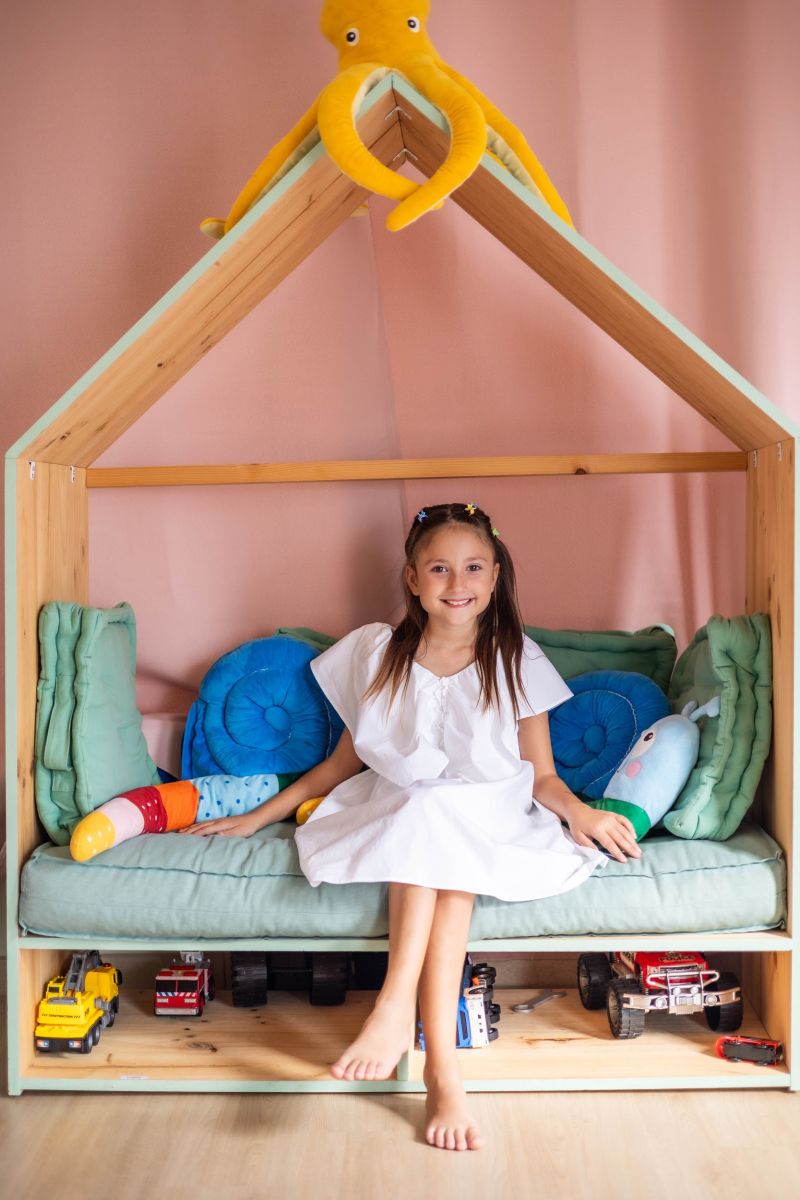
I would first advise parents to start by getting to know us — by finding their people. This truly matters: discovering those who share your values, your outlook, your instincts. The families who come to Happy Dom usually become “ours” very quickly. We feel it immediately. It’s not about formal criteria — it’s about connection, about shared spirit, about trust.
For us, childhood is not a stage for drills, early academics, or a race for languages. Childhood is about joy, emotion, and lived experience. We talk a lot about feelings — we help children learn to recognise where anger, happiness or sadness “live” in their bodies. One child says it’s in their hands, another says in their feet. It may sound simple, but this is the foundation. Because many adults no longer know what they feel: anxiety, frustration, confusion… yet as children, we knew ourselves much better, before expectations, rules and roles were layered on top of us.
I would love for parents to reconnect with their own inner child. When they do, everything becomes easier — raising a child, understanding their needs, finding the right environment. Wherever a child is allowed to be themselves, to feel, to experience — that’s where the foundation for a happy, healthy growth truly begins.
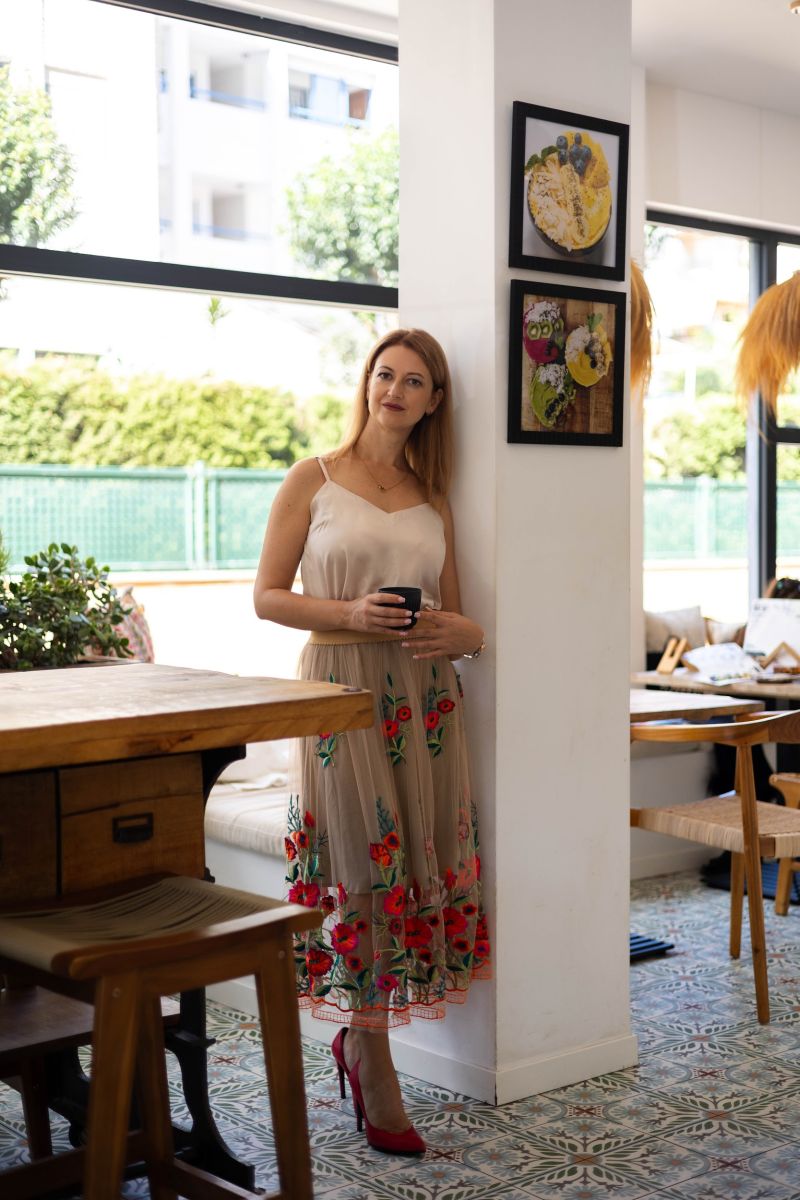
Where a child is allowed to be themselves — to feel, to experience, to express — that is where the foundation for truly happy growth begins. At Happy Dom, we are open to children with different backgrounds, temperaments and needs. Of course, most of the families who come to us speak Russian or Ukrainian. But we already have successful experience working with children from other countries as well — for example, from Norway.
We also welcome children with developmental differences. And this is a deeply important part of our philosophy. Because such children profoundly influence the group: they cultivate empathy, compassion and genuine humanity. Other children begin to help, to notice, to understand. And suddenly, they discover qualities in themselves that they never knew they had. This is exactly why we do what we do.
Follow Olga Duke’s new projects and publications on Instagram: @dukeolgaoleksandrivna
